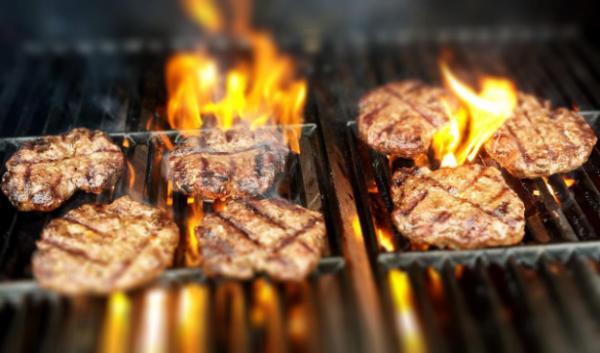We all know what time it is! It’s grilling season and that means lots of great food and family fun. Summer is a season full of fun activities, the great outdoors, and of course, BBQs. July is the peak month for grilling and according to the National Fire Protection Association’s (NFPA) “Home Grill Fires” report, “10,200 home fires are started by grills each year on average.” Something as simple as operating a grill can be disastrous if not handled safely and not paying attention to potential warning signs.
As we kick off summer, we want to make sure everyone has a good time and is safe when handling propane tanks. That’s why it’s important to be knowledgeable about proper propane safety standards for a fun and safe environment. Get your grill ready as we walk you through various potential safety hazards, how to check your propane tanks for leaks and how to properly store your propane tanks.
Potential Safety Hazards
Overheated propane tank – overheated gas cylinders can be dangerous because the gas inside quickly expands when it’s heated, which causes extra pressure inside the cylinder. Propane tanks are very sturdy and it would take extreme heat for them to burst, so ideally, you want to store them outdoors and out of the direct sunlight.
Outdated recertification – Making sure your tank is within its certification date is important. It’s against the law to fill expired propane cylinders. Propane cylinders must be recertified after 12 years from the original date of manufacture and recertified cylinders are good for 5 years before re-inspection. Using outdated tanks are dangerous as they can contain leaks, rust, punctures or other hazards.
Leaking tank – Leaking propane tanks can be a huge hazard if it goes unnoticed. Gas leaks and oxygen mixed together are 2 of the 3 elements that can cause an explosion if combined. All it would take is a spark to ignite and cause combustion. If you do find a leak in your tank, immediately turn off the valve and call your propane supplier.
How to Check For a Leak
When checking for leaks you’ll need to spray a soapy solution onto all threaded connections and the valve stem. In addition, any area of the tank that has an oily stain is an area to check since leaking propane can cause an oily stain. If you see bubbles appear, whether or not the valve is open, you have a problem that needs to be addressed. If the bubbles are on the cylinder or valve our team can service it, otherwise replacement parts for the grill need to be obtained.
An additional signal that there is a leak in your tank is the smell of rotten eggs. A solution is added to propane tanks in case of leakage so that people could easily be made aware of the issue. Make sure your tank is turned off and unplugged from the hose and call your propane supplier to get your tank serviced.
Propane Tank Safety Tips
Storing and inspecting your propane tanks properly will help reduce any potential accidents during your outdoor grilling festivities. Here’s are some tips to remember when handling a propane tank:
- When driving your propane tank home, keep your car ventilated and make sure the cylinder valves are completely closed.
- Always make sure to keep and use propane tanks outside and away from heat sources. You never want to keep it indoors (basement, garage, etc.) in case of potential leakage and increased temperatures.
- Make sure the tank is in an upright position at all times
- Avoid enclosed areas with excess heat, more specifically where the temperature exceeds 120 degrees Fahrenheit and keep your tank in a well-ventilated area.
- Make sure to check the tank hose for leaks before using it after long periods of non-use
- Never smoke while handling a propane tank
- Make sure the cylinder valve is closed when the grill is not in use.
Starting Your Propane Grille
Propane cylinder valves used for barbeque grills have a safety feature that slows the flow of propane if it flows too fast. However, the excess flow valve can be triggered by allowing propane to flow too quickly in normal use. In order to avoid this problem, when starting your grille first shut off all of the burner controls, then open the propane cylinder valve slowly, then open one burner valve and light the grille. After that other burner controls can be opened.
If your cylinder won’t let propane into the grille you can bring the cylinder in for us to reset it.
Choose Wagner Welding For Your Propane Needs
Here at Wagner Welding Supply, we can inspect and recertify your propane cylinder, allowing it to be filled again. After recertification, propane cylinders must be requalified every 5 years in order to be refilled.
The great thing about getting your propane tank filled with us is you get a full 20lb fill. Grocery stores or home improvement stores only give you 15 lbs. We have great prices and make sure you’re going home with a certified tank. We can also fill your portable propane bottles including forklift bottles and motorhome propane tanks.
We also deliver. Our propane delivery area spans the Denver Metro area. We will provide you a delivery quote and answer any questions you may have. For additional information on propane tank fills or recertification, call us at (303) 776-1491 or get a quote online.

